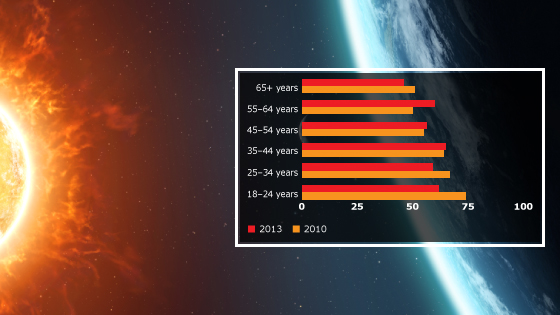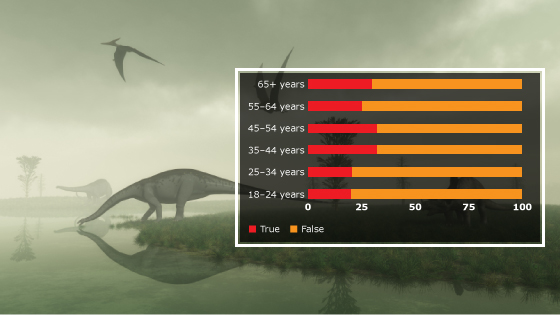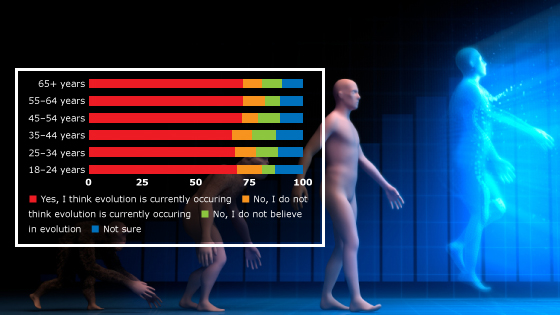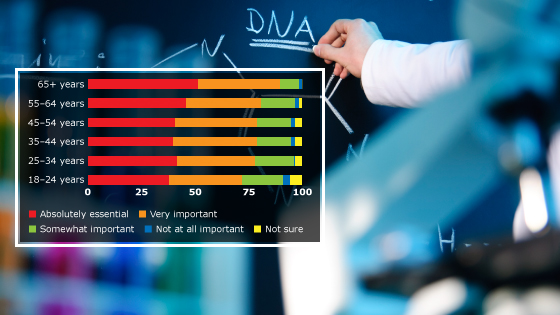Published in 2013, this report presents the results of a survey among Australians to determine their level of science literacy and how it has changed over the past three years.
The questions in this survey were first asked of Australians in July 2010 and were based on a previous survey conducted by the California Academy of Sciences.
The second survey was undertaken online and conducted between 7 and 10 May, 2013. Respondents were drawn from a professional social and market research panel.
The overall sample size was 1515, segmented and weighted to be nationally representative of Australia’s population by gender, age and residential location.
The accuracy of the results at an overall level is +/-2.5% at the 95% confidence interval. This means, for example, that if the survey returns a result of 50% to a particular question, there is 95% probability that the actual result will be between 47.5% and 52.5%.
Note: All percentage figures in this report are rounded. Accordingly, totals may not add up to 100%.
Q: How long does it take for the Earth to go around the Sun? (Percentage by group, 2013 and 2010)

Q: Is the following statement true or false? The earliest humans lived at the same time as dinosaurs. (Percentage by age group)

Q: Do you think that evolution is occurring? (Percentage by age group)

Q: In your opinion, how important is science education to the Australian economy? (Percentage by age group)

© 2025 Australian Academy of Science